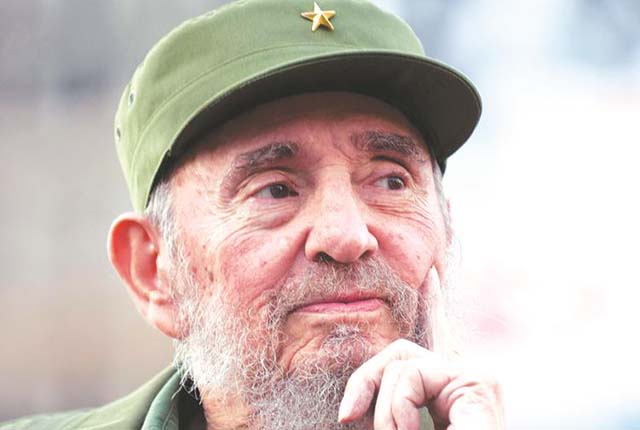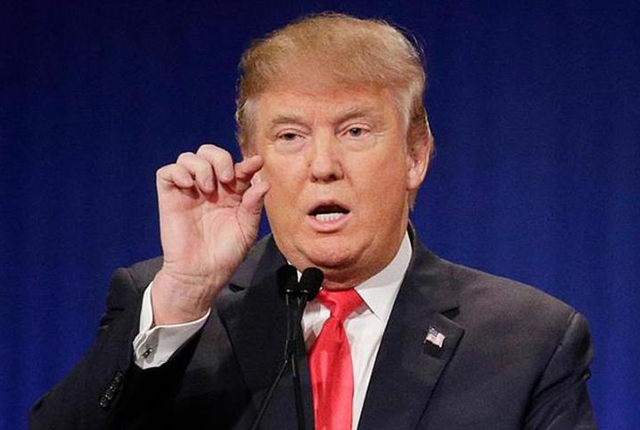Fidel and the good people


Fidel Castro
We are born, we grow up, and we live. This happens within a given historical context. We are products of the social, economic, political, cultural-emotional environments.
We are also our history; but most people are not even aware of their surroundings and the conditions that influence and affect them.
Fidel Castro was shaped by all these circumstances; and he seemed to be very much aware of his context and place.
This is not, at all, surprising — his Jesuit education played a very important formative influence in his primary and secondary education.
Moreover, he was a student who had to live at the school’s facilities because in the town of Biran, where he was born, there were no schools that could meet the children and teenagers’ needs.
Fidel went to the best private and Jesuit schools in the country (Colegio Dolores in Santiago de Cuba and Belen in Havana).
In fact, most of the political and economic leaders of Cuba in the first half of the 20th Century attended those two schools.
As a child, Fidel had the singularity of being physically athletic, intelligent and with a strong determination.
He was also a thinking child who did not show signs of fear.
He was also —usually — taller than the rest of the boys his age.
His memory and daring also accompanied him.
Fidel, from a young age, was a good student with a prodigious memory.
He liked to read about history, literature, and geography among other subjects.
He also had the gift of remembering the names of people as well as facts.
He paid attention to details and, from his Jesuit teachers, learned to be analytical.
He was not known to be a dancer —something so Cuban— but he made up for that by being a baseball and basketball player, explorer and a swimmer.
He loved the outdoors, walking and hiking.
He was born with the gift of wanting to learn everything and of being able to express his ideas, and to draw conclusions on the basis of what he observed.
And also take action.
He had a sense of himself, his environment, the moment and its possibilities.
These he learned at school.
He liked sports, books, adventure, exploring nature but also knowing philosophy, letters, the law, history, sciences and, of course, politics.
This was also part of his schooling.
He was a militant in the Ortodoxo Youth and became an influential voice in the Cuban People’s Party (Ortodoxo) — whose motto was “dignity against money” [verguenza contra dinero].
In fact, by an odd coincidence, Fidel followed the same educational path as Eduardo Chibás who also went to the Dolores school in Santiago, Belen in Havana and the University of Havana.
Many of Fidel’s teachers had been Chibás’ instructors as well.
It is from Chibás that Fidel learned the style of public speaking that made both famous.
But Chibás lacked the athletic side.
Strangely, Fidel was born on August 13, 1926 while Chibás was 19 years older (born on August 15, 1907).
Money did not attract Fidel’s attention.
And from an early age he had the gift of the spoken word.
Like many young people, he read José Martí and that influence followed him forever. (Most Cuban politicians mentioned Martí in their public speaking, including Fulgencio Batista, but Fidel became an Martí disciple of Martí).
In the 1940s — while in high school — when the Cuban parliament was discussing the secularisation of public schools, Fidel spoke against it on behalf of his school.
As an adult, he identified with social issues, student and national politics and movements.
From his parents, school, political affiliation and studies he developed a clear sense of what was “just”.
He met and followed the famous charismatic politician Eduardo Chibás, and among his elders he befriended leading national figures including the anthropologist Fernando Ortiz.
He also had close contact with people who had strategic access to Cuban populism such as Conchita Fernández [who had been a secretary of Ortiz as well as Chibás].
He studied — as many Cubans did– José Martí ‘s work — the Martí who founded a political party and revolutionary movement in the armed fight for Cuban independence.
The 19th Century intellectual, poet, journalist was also a teacher of tobacco workers — who united the social question (labour rights, etc) with the struggle for national emancipation.
This was also the Martí who taught the necessity of defending justice and social equality through his poetry; the one of the poem Los zapaticos de Rosa [The Pink Shoes — a poem by Martí depicting the altruistic act of a very young girl who gives her new shoes to a poor girl — which was an elegy to social justice). Moreover, Martí was the intellectual who, in the late 19th Century, organised a political party for national liberation through the use of weapons.
In Martí’s view, national independence had a two-fold objective: to attain Cuba’s national sovereignty while stopping the US government from seizing the island.
Fidel wanted to learn so much and so fast that, at the University of Havana, he studied on his own, without a tutor, numerous subjects.
He had a photographic memory.
And he was as active and sociable at home in his house in the country as he was at school.
As a grown man, he succeeded,after 1951, in taking the place of the disappeared charismatic leader, Eduardo Chibás.
He articulated a view of a revolutionary Chibás movement that eventually, and for various reasons, evolved into a revolutionary Latin American Marxism.
Like the intellectual and revolutionary José Martí, Fidel adopted the strategy and vision of armed struggle to create a new Cuba.
His internationalism stems from Martí as well who proclaimed that “homeland is humanity.” (Patria es humanidad.)
Fidel integrated the thoughts of Martí, Simón Bolívar and even Karl Marx.
Fidel Castro and those who worked with him were themselves transformed in the same process of producing revolutionary changes in Cuba. .
And, even with Cuba’s small population, so close to the US, and with so few material resources, Fidel and compatriots transformed the island into an alternative model in the hemisphere.
And, from the onset, Fidel Castro transformed Cuba from a dependency dominated from the north into an example for the Caribbean, Latin America, Africa and even Asia.
By January 23, 1959 Fidel was already visiting Venezuela.
Eventually, Cubans became active members of an international community where they were and are taken into account.
The Cuban revolution changed everything, not only on the island.
Social and mass mobilisation brought people into participation in programs of education, construction, culture spreading, and health, and brought a sense of self-emancipation to many supposedly “dark” corners of the world.
It is with Cuba that the world learned of a new internationalism — based on solidarity, brotherhood, justice and respect for one another.
In addition, Cuba survived the terrible years of the nineteen-nineties when the foreign media and numerous governments said that the island was Numancia, or a Jurassic Park with no future.
However, instead of being isolated, Cuba survived with even greater internationalism.
Fidel spoke with the people almost daily and urged them to fight and carry on.
From early 1959, the Cuban people joined efforts in the construction of the Cuban and Latin American nation. Eventually, Cuba and the Third World became brothers.
It was once thought that the Cuban Revolution was not going to survive without the colonial relationship it had with the US.
The same was also thought after Cuba was alone when the Soviet bloc disappeared. When Fidel’s illness began, it was thought that the revolutionary regime would be impossible without the charismatic leader.
Today, it is possible that many will again assume that the Cuban revolution will not be able to continue.
But Jose Martí had written on March 21, 1889, in his letter to Manuel Mercado, what Fidel and all Cuban revolutionaries have as their method, goal and end:
“What I want is to show that we are good, industrious and capable people. To each offence, a response . . . and more effective because of its moderation. To each false assertion about our countries, the correction at the foot of the page. To each flaw –fair in appearance —of which we are accused, the historical explanation that explains it, and the proof of the ability to remedy it. Without defending, I do not know how to live. It would seem to me that I was guilty, and that I failed to do my duty, if I could not carry out this idea. “- [José Martí [Letter to Manuel Mercado, March 21, 1889]
A CubaNews translation. Edited by Walter Lippmann.










Comments